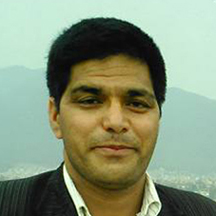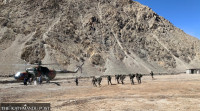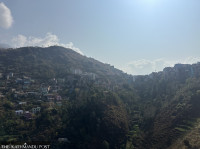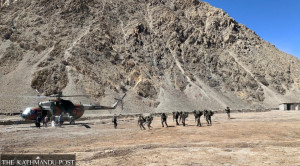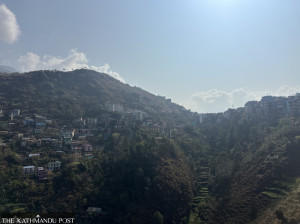Karnali Province
Community schools in Kalikot a playground for local political leaders
Politicisation of school management committee elections in community schools expose students to highly volatile political atmosphere hampering their studies..jpg&w=900&height=601)
Tularam Pandey
Panchadewal Secondary School in Mehelmudi held an election on Thursday to elect the members of its School Management Committee. The candidates organised publicity campaigns and distributed pamphlets decorated with their election symbols in the school. Jana Jyoti Secondary School in Subha Kalika Rural Municipality also held an election to elect members of its School Management Committee recently.
In both school elections, the candidates who ran for the School Management Committee memberships were affiliated to various political parties.
“During the elections for the management committee, members of various political parties tend to file their nominations,” said Chief District Officer Krishna Chandra Poudel, “and we are obligated to provide security. Even though these are just school elections, the atmosphere is that of a major political election.”
Party leaders participate in the school elections not only for political gain but also because their election to the committee opens avenues to financial profit, said Mahesh Devkota, Chairman of Education Development and Coordination Division.
Political meddling in schools comes at a cost, says Devkota. For instance, there are 99 community schools and 42 secondary schools in the district but none of them has a single post for government-appointed teachers. Since appointing government teachers requires consensus among the school management committee members, which is rarely achieved owing to their affiliation to various political parties, the committees prefer hiring private teachers on a contract basis in various community schools. The school, in turn, has to make adjustments in its budget allocation to pay these private teachers. “The funds for mid-day meals, textbooks and scholarships have been used to provide salaries to private teachers,” said he said. “The practice of political leaders taking an active part in school elections has muddied the education system in the community schools,” said Devkota.
According to the Education Act 1971 and Education Regulation 2002, the nine-member management committee must comprise four parents (guardians), one educationist, one male and one female donor who has extended financial support to the school in the past, the respective ward chairman and the principal of the school.
Aside from the financial implications, the schools also suffer from interrupted classes, and the overall political atmosphere that enshrouds the schools during campaigning leading up to the day of voting. “There are political colours everywhere during the elections. The appointment of management committee members should ideally happen through consensus,” said Devkota, “But in the absence of a consensus, which happens more often than not, there is a provision to elect the members through elections.” This allows members of various political parties to become a part of the school system and to meddle in the school affairs.
Most of the community schools in the district have leaders of various political parties at the helm of their School Management Committees.
Of the 62 secondary schools in the district, the leaders from ruling Nepal Communist Party have won the chairmanship of the committee in 38 schools, followed by Nepali Congress leaders, who are working as committee chairmen in 19 community schools. while three school committees have chairmen from Rastriya Prajatantra Party and two other schools have leaders of other political parties as their chairman.
Hansha Bahadur Shahi, the general secretary of Nepal National Teachers Organisation, who is also the principal of Pili-based Kalika Secondary School, said that the political leaders enthusiastically participate in school elections to have the school funds at their disposal. “Despite holding elections being a democratic process, no one has a concrete plan to use their position in the school to work towards the betterment of that school,” said Shahi, “Most of the committee chairpersons are only interested in the construction of physical infrastructure and teachers appointment for financial and political gains.”
One of the prerogatives to be able to run for office in the School Management Committee is to have at least one ward as a student in the school. However, the children of the majority of the chairpersons of the community schools are not the students of the same school. “To get around to this provision, most School Management Committee members participate in the elections claiming to be the guardian of one or several of the school’s students,” informed Rara Katiya-based Mahadev Secondary School Principal Durga Bahadur Shahi.
Kali Bahadur Malla, a civil society leader from Rara Katiya, said that the children of over 50 percent of the committee chairpersons are studying in other schools in the cities. “Those persons whose children are not even enrolled in the community schools are serving as chairman of the school committee,” said Malla, “The authorities should make it mandatory that the children of the members of the school committee who get their salaries from the government be enrolled at community schools.”
Kamal Bahadur Shahi, one of the non-guardians holding a post at the school management committee at Kalika Secondary School in Rachuli, responds to the locals’ complaint of his election being “wrong.”
“Although my children are not enrolled in this school, I became a member of the school management committee to serve the children of my village,” he claimed. “I have personally donated Rs1.6 million to the school.”
Meanwhile, the students of various community schools in the district are not pleased with the practice of holding elections in their schools. Sunita BK, who attends Panchadewal Secondary School in Mehelmudi, is worried since she has a lot of catching up to do in her coursework. “The school management committee elections were held on Friday. Before that, I wasn’t able to focus in class. This entire exercise interrupted our daily classes. We couldn’t concentrate,” she said. “They can hold the elections during school holidays if they must.”
Likewise, the parents and guardians of these students also express their dissent over the politicisation of school elections claiming that such activities have encouraged irregularities in schools while also affecting their children. “These elections, in which the political party leaders take part, have damaged the learning and teaching environments of our children's school," said Mitthu Shahi Sailaja, whose daughter also attends Panchadewal. "The power play and politics that occur during the elections have not only hampered the studies but has also affected the mental state of our children in that they are exposed to a highly political atmosphere unsuitable for young children."




 9.7°C Kathmandu
9.7°C Kathmandu